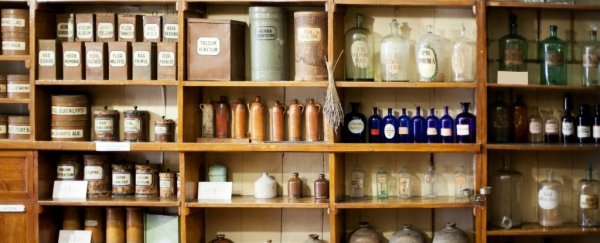The United Kingdom's National Health Service (NHS) has announced it will no longer fund "ineffective, over-priced and low value treatments" in light of a public consultation on how the body intends to cut costs in coming years.
"At a time when we need to find all the money we can for new, highly effective drugs we must ensure every pound is spent wisely," says NHS England medical director Bruce Keogh.
The recent announcement by NHS broadly focusses on limiting funding for what it calls treatments for "minor self-limiting conditions" that cost the system £50 million to £100 million a year.
The measure is taking the form of consistent national guidelines for the Clinical Commissioning Groups, a collection of statutory bodies that govern local healthcare services.
Among the items on the proposed chopping block are cough mixtures, supplements such as glucosamine and omega-3, cold treatments, eye drops, laxatives, and sun cream lotions.
In addition to these are treatments described as homeopathic – mixtures based on an active compound that would produce similar symptoms to an illness, if not for the fact it was then diluted until there was a negligible chance any of it remained in the final dose.
Homeopathic remedies of any type can be registered and sold in the UK without certification, so long as the product is at least a 1 in 10,000 dilution and makes no explicit therapeutic claims.
In spite of acknowledging that there is no good quality evidence supporting the efficacy of homeopathy as a treatment, the NHS currently provides funding for its delivery through medical centres in London and Glasgow.
Not all patients visiting these centres receive homeopathic treatment, and so according to the BBC it's difficult to know exactly how much is being spent.
One estimate by the Good Thinking Society estimates the NHS could be spending a little over £5 million annually on providing homeopathic treatment through dedicated centres.
In all, that's barely 0.004 percent of the NHS's total budget. Tiny, and a number that is decreasing each year. While the NHS spent only about £92,000 on homeopathic prescriptions in 2016, 16 years earlier it was over £800,000.
The total costs might be both trifling and falling, but for some those savings can't come soon enough.
"Homeopathy is based on implausible assumptions and the most reliable evidence fails to show that it works beyond a placebo effect," Edzard Ernst from the University of Exeter – a vocal advocate on the strict regulation of homeopathy – told The Guardian.
"Therefore, it is high time that the NHS stops funding it and instead employs our scarce resources on treatments that are backed by sound science."
Homeopathy has been regarded as a traditional treatment in the UK since its development by the German physician Samuel Hahnemann in the late 18th century.
Initially viewed as a safer alternative to contemporary medications and practices that were historically regarded as unpleasant and ineffective, two centuries of rigorous scientific scrutiny has failed to provide evidence that the method prevents or alleviates suffering.
In 2010, a committee of the British House of Commons called for the NHS to cease funding homeopathic hospitals and prescriptions altogether.
In today's climate of austerity and budget cuts, this initiative will no doubt elicit mixed reactions, especially where the nation's more vulnerable citizens are concerned.
While a defunding of treatments such as homeopathy might be celebrated by many, it's possible there's something in the cuts to upset just about everybody. The action will also see restrictions in the availability of gluten-free foods on prescription, saving the services a potential £26 million a year.
The action plan will need to make it through a consultation process before it can be implemented, so if you're a Brit and are keen to have your say take a look at the draft and fill out the online survey.
